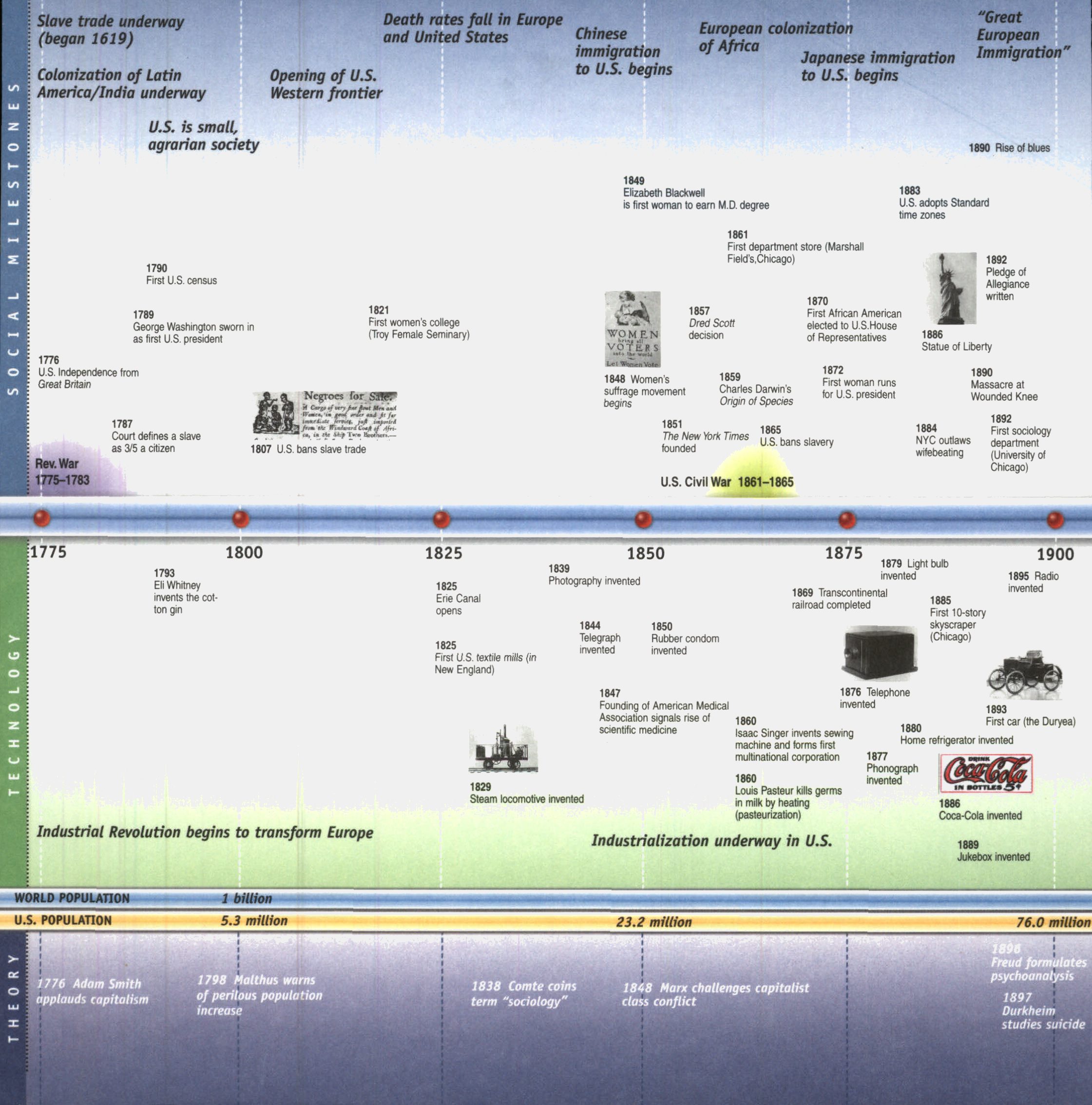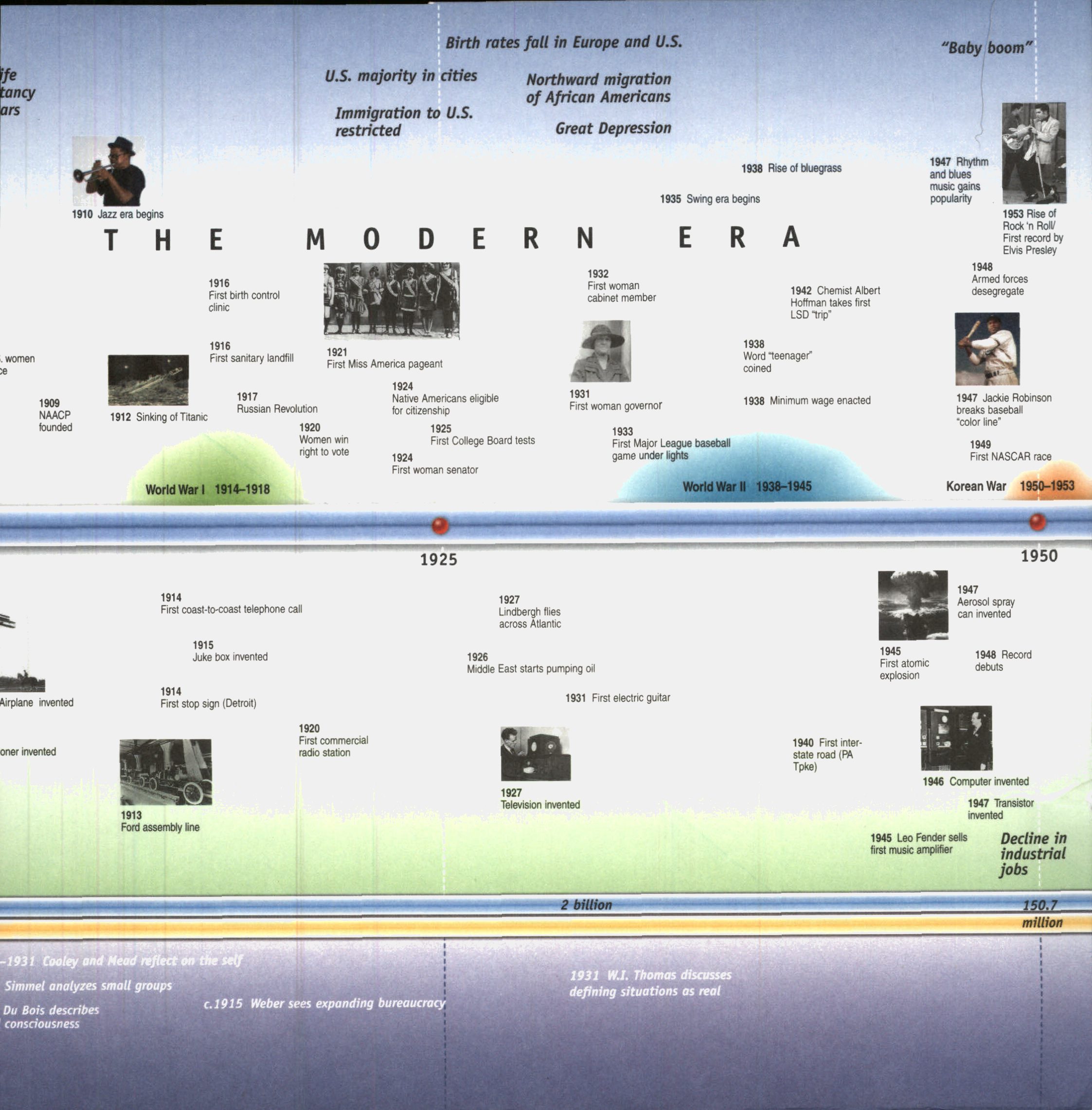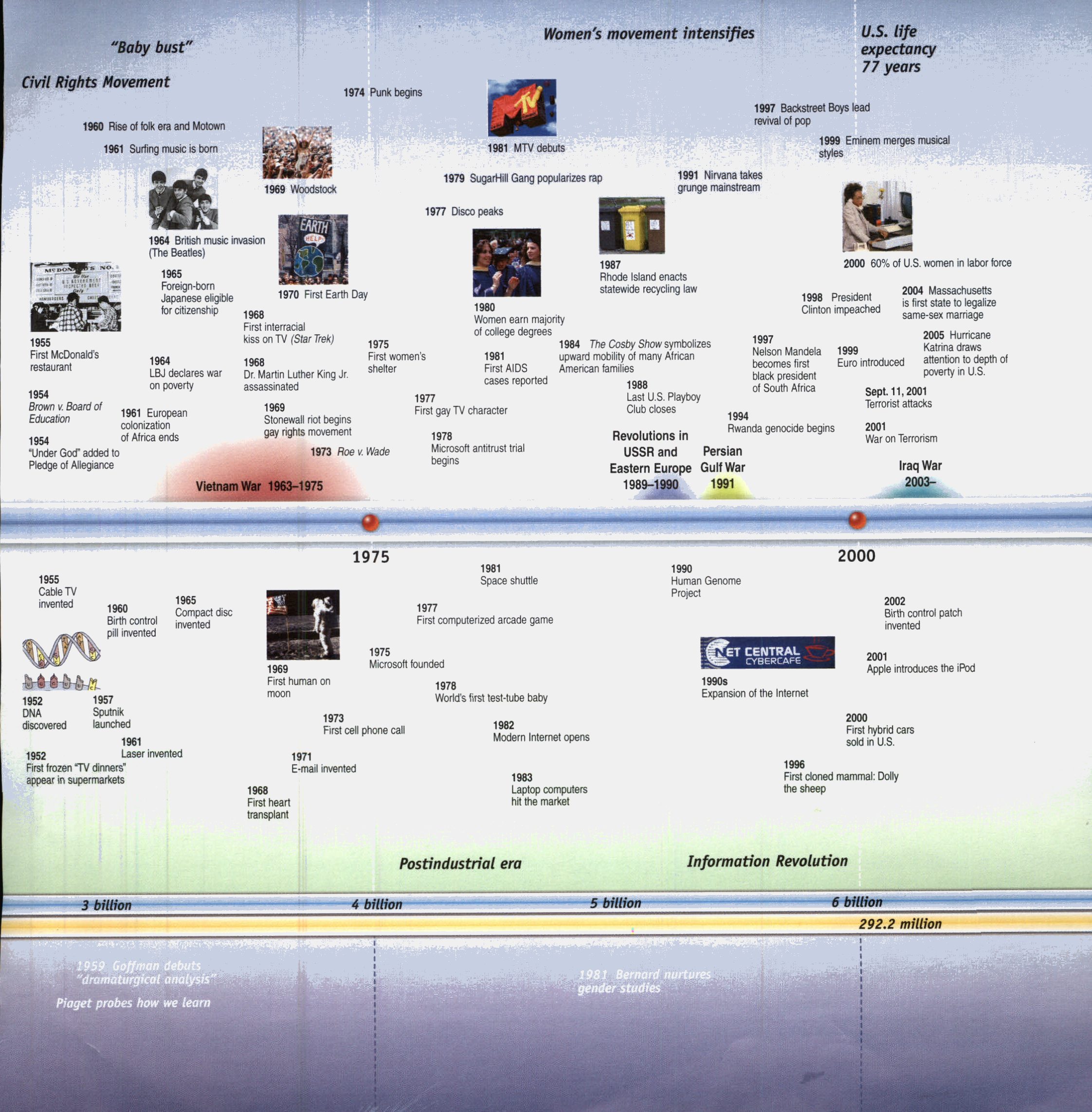|
Links blank Top |
|
Links |
|
| - Project: Your Status, Class, & Power |
|
||
|
|
- Biography & Major Works | ||
| SUMMARY: There are EIGHT major ideas of Weberian sociology
1. The major influence in modern society is the development of rationality 2. Charisma, tradition, & rationality are all forms of authority 3. In relation to an overview of Weber, while rationality is necessary for the dev of mod soc, it is also dominating soc 4. The dimensions of stratification include class, power & status 5. Culture, like economics, affects the fundamental structure of society 6. History demonstrates the development of rationality 7. Weber agreed w/ Marx on the functioning of the econ sector, but supplemented his work w/ examinations of rationality & culture 8. Weber believed that the development of social science methodology was needed |
|||
| There are EIGHT major ideas of Weberian sociology |
|
||
| 1. THE MAJOR INFLUENCE IN MODERN SOCIETY IS THE DEVELOPMENT OF RATIONALITY |
|
||
|
|
For Weber, rationality is a method or practice of choice based on who / what works best in achieving a given objective | ||
| 2. CHARISMA, TRADITION, & RATIONALITY ARE ALL FORMS OF AUTHORITY |
|
||
| 2.1. Charismatic authority is present when one is treated as endowed w/ supernatural, or at least exceptional powers or qualities not accessible to ordinary people | |||
| 2.2. Traditional authority is the claim by leaders & the belief by followers in the virtue of sanctity of age old rules & powers | |||
| 2.3. Legal/rational authority is a model of choice based on who / what works best in achieving a given objective | |||
| 2.3.1. BUREAUCRACY IS THE ULTIMATE RATIONAL SOCIAL ORGANIZATION | |||
| See Weber on Organizations | |||
| Weber believed that, conceived as a pure type, the modern bureaucratic organization has several distinctive characteristics | |||
| 2.3.2. Weber noted that Marx largely ignored administrative domination & organizational life |
|
||
| See Also: A comparison of Charismatic, Traditional, & Rationality Authority | |||
| 3. WHILE RATIONALITY IS NECESSARY FOR THE DEV OF MOD SOC, IT IS ALSO DOMINATING SOC | |||
| Weber viewed the development of the modern era as increasingly dominated by the "iron cage of rationality" | |||
| Weber called the rationalization of society, i.e. the development of the iron cage of rationality, the disenchantment of the world | |||
| Weber demonstrated that the disenchantment of the world had been carried out more thoroughly in the West than elsewhere | |||
| Weber thought the development of rationality in society was inevitable, but was extremely uncertain about the value of said development | |||
| For Weber, domination had been implemented, historically, through govt, i.e. political orgs | |||
| Weber feared that domination would become absolute through bureaucracy | |||
| Weber conceived of many of the dysfunctions of bureaucracy | |||
| Weber analyzes the role of professionals in bureaucracy & concludes that they have the best chance of breaking out of the "iron cage of rationality" | |||
| 4. THE DIMENSIONS OF STRATIFICATION INCLUDE CLASS, POWER, & STATUS |
|
||
| See Also: Stratification | |||
| 4.1. Class, a.k.a. the economic dimension, is based on wealth & income |
|
||
| Weber updates Marx on class by adding the middle & professional classes | |||
| 4.2. Power, a.k.a. the political dimension, is based on political power |
|
||
| 4.3. Status, a.k.a. the social dimension, is based on prestige, honor, etc. |
|
||
| Weber is the first social theorist to make status important in social analysis | |||
| The addition of power & status to social analysis makes Weber similar to the neo Marxists | |||
| 5. CULTURE, LIKE ECONOMICS, AFFECTS THE FUNDAMENTAL STRUCTURE OF SOCIETY | |||
| Weber, contrary to Marx, believes that the cultural system affects being as much as the economic system |
|
||
| Weber believed that all societal institutions were shaped by climate & geography as well as by the econ system | |||
| In the PESC, Weber finds that the economic & religious systems have mutual impacts on each other | |||
| The transition from ancient Judaism to Christianity enhanced the evolution of capitalism & rationality | |||
| China did not develop capitalism for many reasons | |||
| India did not develop capitalism for many reasons | |||
| 6. HISTORY DEMONSTRATES THE DEVELOPMENT OF RATIONALITY | |||
| Weber adds cultural effects to economic effects to understand history | |||
| Early Empire Era aka Asiatic System 3 K - 200 BC | |||
| Empire Era: Ancient Slave Society:
The Transition to Feudalism 200 BC - 500 AD |
|||
| Middle Ages: Transition to Capitalism 500 - 1300 | |||
| Early industrial Age: Western Capitalism 1300 - 1700 | |||
| 7. WEBER AGREED W/ MARX ON THE FUNCTIONING OF THE ECON
SECTOR,
BUT SUPPLEMENTED HIS WORK W/ EXAMINATIONS OF RATIONALITY & CULTURE |
|||
| Weber's "debate w/ ghost of Marx" was a sympathetic debate | |||
| Marx examines the development & impact of the economy | |||
| Weber examines the development & impact of rationality | |||
| 8. WEBER BELIEVED THAT THE DEVELOPMENT OF SOCIAL SCIENCE METHODOLOGY WAS NEEDED | |||
| Weber & many other soc scientists believe that the soc sciences must distinguish themselves from phil & common knowledge by developing a methodology that allows for the creation of verifiable, objective knowledge | |||
| One of Weber's major discoveries was that science cannot be value free |

Max Weber 1864 - 1920 ( pronounced vay ber ) Born and resided in: Germany, then Known as Prussia
Weber studied legal and economic history at several German universities.
Towards the end of his life, Weber became politically active and served on the committee that drafted the constitution of the Weimar Republic in 1918. xrefer Who's Who in the Twentieth Century, Oxford University Press, © Market House Books Ltd 1999 WEBER, Max (1864-1920). 'The Protestant Ethic and the Spirit of Capitalism',
Max Weber's most controversial and stimulating book, was published in 1904-05.
In it he asserted that the stern doctrines of Calvinism bred in believers
a relentless commitment to one's earthly calling and an avoidance of trivial
pleasures. The result was, in Protestant nations, the rapid accumulation
of capital that has made possible the enormous structure of modern economic
life.
---------------------------------------------------------
|
|
||||
Protestant Ethic and the Spirit of Capitalism. 1904, trans.,
1930
|
|||||




